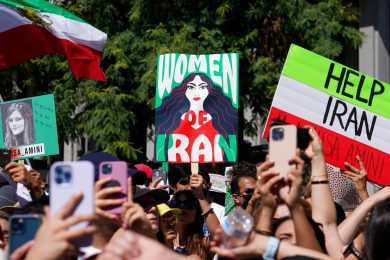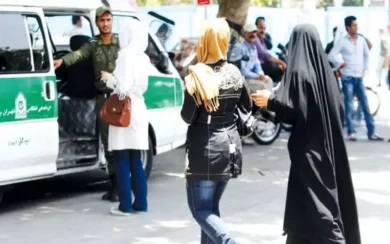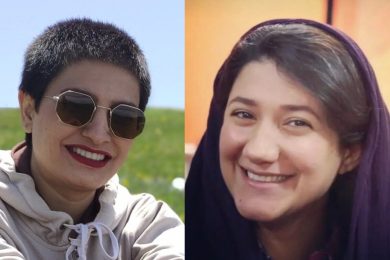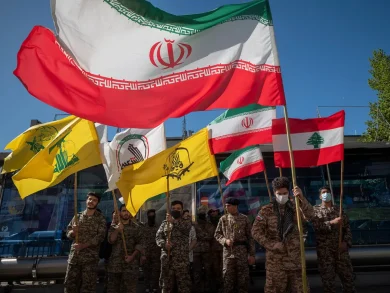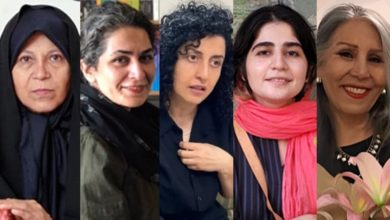The Islamic Revolutionary Guard Corps (IRGC) has long operated as a militarized state within a state—one that wages war, silences dissent, and funds terror with impunity. From the streets of Tehran to the battlefields of Syria, from cyberwarfare to gender apartheid, its crimes are systematic, widespread, and often hidden behind sovereign immunity and diplomatic inertia.
But justice does not—and must not—end at borders.
The evolving landscape of international law, human rights litigation, and universal jurisdiction offers a powerful set of tools to hold the IRGC accountable for its crimes. Survivors, lawyers, governments, and activists are increasingly using these tools to bring IRGC commanders, enablers, and institutions into the legal spotlight.
This article explores the legal frameworks available to pursue justice without borders against the IRGC, the challenges of implementation, and how global coordination can bring this terror machine under international law.
1. What Crimes Has the IRGC Committed?
A. Crimes Against Humanity
• Systematic torture of detainees, especially during protests
• Mass executions of political prisoners
• Suppression of peaceful assembly with lethal force
• Sexual violence in prisons and detention centers
B. War Crimes
• Participation in Syrian civil war atrocities
• Drone and missile attacks targeting civilians in Saudi Arabia, Iraq, and Israel
• Use of child soldiers by IRGC-backed militias (e.g., Houthis, Fatemiyoun)
C. Terrorism
• Assassination plots abroad (e.g., Masih Alinejad case, Paris bombing plot)
• Support for groups designated as terrorist organizations (Hezbollah, Hamas, Houthis)
D. Gender-Based Repression
• Systematic persecution of women for hijab defiance
• Chemical attacks on schoolgirls
• Enforcement of gender apartheid policies
The IRGC is responsible for both state and non-state crimes, giving international courts multiple avenues for legal action.
2. The Principle of Universal Jurisdiction
Universal jurisdiction allows states to prosecute grave crimes like genocide, war crimes, and crimes against humanity regardless of where they were committed or the nationality of the perpetrator.
Key Precedents:
• Spain’s attempt to prosecute Pinochet (Chile)
• Germany’s trial of Syrian intelligence officials
• Ongoing cases against Myanmar generals and Russian war criminals
Any country with appropriate legislation can prosecute IRGC crimes if the perpetrator is present or if the case involves a national interest.
3. National Courts Leading the Way
A. Germany
• German law allows prosecution of international crimes under the Völkerstrafgesetzbuch (VStGB)
• NGOs have filed criminal complaints against IRGC officials over 2022 protest crackdowns and torture
B. Sweden
• Swedish courts have convicted Iranian officials for 1988 prison massacres under universal jurisdiction
• IRGC figures linked to those events could be targeted
C. France
• French courts have opened terrorism-related inquiries into IRGC-linked assassination plots
• Universal jurisdiction could be applied in upcoming years
D. United States (Civil Courts)
• Under the Foreign Sovereign Immunities Act (FSIA), U.S. courts allow victims of terrorism to sue state sponsors
• Several successful cases have awarded billions in damages against Iran, which includes IRGC liability
4. The Role of International Institutions
A. International Criminal Court (ICC)
• Iran is not a party to the Rome Statute, but:
• The UN Security Council can refer cases
• ICC jurisdiction could apply if crimes extend into states that are parties (e.g., Syria, Iraq)
• Focus areas: war crimes in Syria, crimes against humanity in Iran
B. UN Special Procedures
• Fact-finding mission on Iran (est. 2022) investigates human rights abuses
• Findings may support future legal cases or ICC referrals
C. UN Special Rapporteurs
• Reports on freedom of expression, gender-based violence, and arbitrary detention provide evidence for accountability
5. Civil Litigation and Strategic Lawsuits
Civil suits can expose and disrupt IRGC operations, especially by targeting:
• IRGC front companies and financial institutions
• Dual nationals and officials with property abroad
• Sanctioned individuals violating asset restrictions
Example:
• Rubin v. Iran: U.S. victims of terror successfully sued Iran and sought compensation from seized antiquities
Litigation can also force disclosure of information, establish legal precedents, and provide symbolic justice to survivors.
6. Sanctions as Legal Enforcement Tools
While not judicial, Magnitsky-style sanctions impose legal and financial consequences on perpetrators.
What They Do:
• Freeze assets abroad
• Ban travel and visa entry
• Signal political condemnation
• Enable further legal investigation
Countries like the U.S., UK, Canada, and EU have used these to target IRGC commanders responsible for:
• Torture of protesters
• Cyberattacks on foreign targets
• Export of weapons to militias
Sanctions can also trigger inter-agency investigations and provide leads for prosecutors.
7. Obstacles to Accountability
A. Sovereign Immunity
• The IRGC is a state actor, complicating prosecution in many jurisdictions
• However, terrorism and war crimes can pierce immunity in some cases
B. Lack of Political Will
• Many governments prioritize diplomacy or trade over justice
• Prosecutors are hesitant to pursue cases without strong state backing
C. Access to Evidence
• Iran restricts access to prisons, witnesses, and crime scenes
• Digital evidence (videos, leaks, testimony) must be carefully authenticated
D. Lack of Coordination
• Prosecutions are often siloed across countries
• A global mechanism to track IRGC crimes is lacking
8. The Role of NGOs, Activists, and Survivors
Non-state actors are crucial in building legal cases.
Contributions Include:
• Gathering and archiving testimony
• Preserving digital evidence of torture and killings
• Filing legal complaints in European courts
• Pushing governments to act via advocacy and lobbying
Groups like Iran Human Rights, Justice for Iran, and United for Iran are at the forefront of this effort.
9. Mapping IRGC Crimes for Prosecution
To support future legal action, IRGC crimes can be mapped and categorized:
Crime Type
Perpetrators
Victims
Location
Evidence Type
Torture
IRGC Intelligence
Protesters
Evin, Fashafouyeh
Testimony, audio leaks
War Crimes
Quds Force
Civilians in Syria
Aleppo, Homs
UN reports, images
Cyberattacks
IRGC Cyber Unit
Dissidents abroad
U.S., Canada, UK
Phishing traces, FBI indictments
Gender-based repression
Basij, IRGC
Women and girls
Nationwide
Videos, survivor interviews
Assassination plots
Quds Force, Hezbollah
Dissidents
France, U.S., Turkey
Court docs, security leaks
Such mapping facilitates legal targeting and strategic prosecution.
10. Recommendations for Action
For Governments:
• Enact or strengthen universal jurisdiction laws
• Designate the IRGC as a terrorist organization
• Share intelligence with prosecutors and NGOs
For Civil Society:
• Collect secure testimonies from survivors
• Preserve metadata, screenshots, and leaked documents
• File criminal complaints and pursue legal partnerships
For International Bodies:
• Launch a global tribunal or investigative mechanism
• Refer IRGC crimes to the ICC via the UN Security Council
• Apply coordinated Magnitsky sanctions on a rolling basis
Conclusion: From Impunity to Justice
The IRGC has operated for decades behind walls of power, wealth, and impunity. But walls crack under pressure. And justice—though slow—travels.
Join Our Newsletter!
Stay informed with the latest updates, news, and ways to take action in the fight for justice and global security. Sign up now to get updates delivered straight to your inbox!

